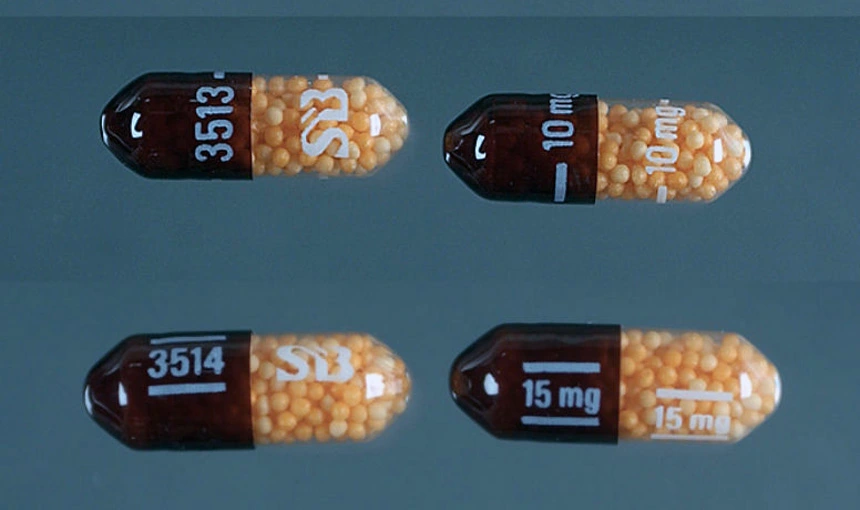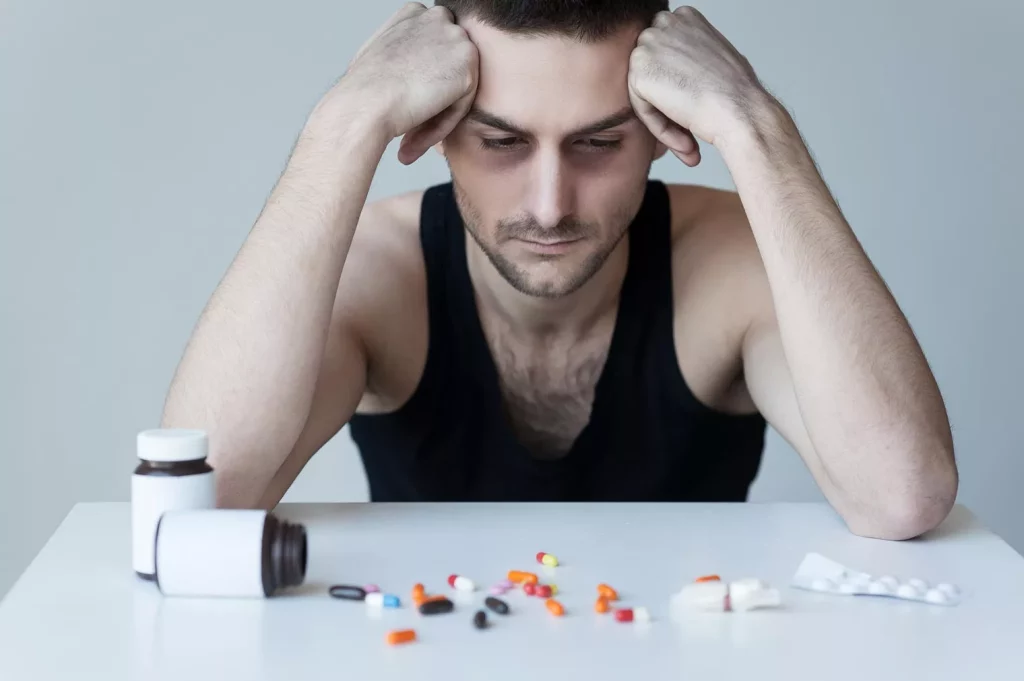What is Dexedrine?
Table of Contents
- What is Dexedrine?
- Understanding Dexedrine Addiction
- Recognizing the Signs of Drug Abuse
- Understanding Dexedrine Withdrawal
- How Long Does Dexedrine Withdrawal Last?
- What are the Symptoms of Dexedrine Withdrawal?
- Avoiding The Dangers of Dexedrine Withdrawal
- Addiction Treatment Options for Dexedrine Abuse and Withdrawal
- The Importance of Medical Detox for Managing Dexedrine Withdrawal Symptoms
- After Detox: The Rehabilitation Process
- Dexedrine Addiction Treatment Services: Found Here
- Medically Reviewed By
Dexedrine, the brand name for dextroamphetamine, is a stimulant medication used to manage Attention Deficit Hyperactivity Disorder (ADHD) and narcolepsy. As it is a potent central nervous system stimulant, taking it can produce desirable emotional states, such as euphoria, increased focus, and a boost in energy level.
However, it is also classified as a Schedule II Controlled Substance, meaning it has a high addiction potential as well as the possibility of Dexedrine withdrawal if a user suddenly stops taking the drug.
Its desirability and accessibility help explain the 3.1 million Americans who reported using a stimulant like Dexedrine in the past month, as per a 2014 survey by the Substance Abuse and Mental Health Services Administration.
That number has only gone up since then, with millions of Americans turning to these drugs for exhaustion and to cope with busy schedules. Lengthy abuse of prescription stimulants, such as dextroamphetamine, can produce withdrawal symptoms if use is stopped, as per the National Institute on Drug Abuse.
Understanding Dexedrine Addiction

Dexedrine addiction is, unfortunately, becoming an increasingly common issue throughout the U.S.. This appears to be primarily due to the common misconception that this and other prescription stimulants are performance enhancers, especially amongst young adults.
Because of this belief, many younger individuals will begin abusing Dexedrine and other similar prescription drugs because they believe this will help them to more easily study and retain information, thus boosting their academic performance.
ADHD treatment medications such as this one can also limit their user’s appetite, leading them to abuse Dexedrine as a means of losing weight. This, unfortunately, can cause them to develop nutritional deficiencies and malnourishment, alongside a serious drug addiction.
Compulsive drug use, whether prescribed or not, can quickly lead to a Dexedrine addiction. Unfortunately, it can be extremely difficult to quit one’s use of this stimulant drug without proper treatment and professional support.
This is because long-term Dexedrine abuse will gradually change the chemistry of a user’s brain, causing them to form a physical and psychological dependence on this substance. In many cases, they may be unable to experience pleasure or feel normal without it.
Once a person has formed a Dexedrine addiction, their brain will be unable to produce dopamine and other chemicals on its own, producing many uncomfortable withdrawal symptoms should the individual attempt to reduce or stop their usage of this drug.
Recognizing the Signs of Drug Abuse
If you or a loved one is struggling with Dexedrine addiction, it can be difficult to admit that there is a problem. However, doing so will be absolutely necessary in order to seek out professional substance abuse treatment services and have a successful recovery from addiction.
There are several common signs that may indicate a person may have a substance use disorder, whether this involves Dexedrine or any other addictive substances. The most common of these include:
- The inability to control drug use.
- Intense cravings for an abused drug.
- Drowsiness and/or changes in sleeping habits.
- Extreme weight loss or weight gain.
- Poor hygiene and/or lack of self-care.
- Changes in personal habits and routines.
- Isolation from family, friends, or external activities/obligations.
- New financial difficulties or odd spending patterns.
Understanding Dexedrine Withdrawal
Getting off dexamphetamine is possible, although stopping dexamphetamine suddenly is not recommended. Dexedrine withdrawal occurs for people who have developed a dependence on the drug, and these unpleasant symptoms can also occur for those who have taken it in prescribed doses.
Dextroamphetamine withdrawal symptoms can include both physical and psychological symptoms, as both the person’s physical body and emotional well-being will be significantly impacted by the removal of the abused substance from their system.
How Long Does Dexedrine Withdrawal Last?
Dexedrine withdrawal starts within a day of the last dexamphetamine dosage and typically the Dexedrine withdrawal timeline is 3 to 5 days. For acute cases though, such as addicts, the withdrawal phase can last 1 to 2 months.
How long withdrawal symptoms will last when reducing one’s Dexedrine use will vary based on many factors, including the severity of the addiction, how the body metabolizes the drug, and the current physical and mental health conditions of the user.
Generally, the longer the drug was taken and the more severe the addiction, the longer the withdrawal symptoms hang on. For some people, their stimulant withdrawal may persist past the two month period.
This is known as post-acute withdrawal syndrome and may be more common amongst those struggling with co-occurring mental disorders, although anyone who is recovering from Dexedrine abuse may develop this condition.
What are the Symptoms of Dexedrine Withdrawal?
Quitting or severely reducing the amount of dexamphetamine a person is using in a short period of time can have very uncomfortable physical and psychological effects as, over time, the use of stimulants such as this one can lead to neuropsychological issues.
Even after stopping use, research reveals that cognitive and functioning impairments may persist. The impact on human brain function is what primarily causes physical and mental withdrawal symptoms. These Dexedrine withdrawal symptoms can be painful and disconcerting.
Those recovering from Dexedrine abuse may experience withdrawal symptoms such as lethargy, irritability, problems concentrating, disturbed sleep patterns, drug cravings, and severe depression. Even more severe withdrawal symptoms such as hallucinations, paranoia, and suicidal tendencies can occur when the drug was taken in large doses.
How dexamphetamine withdrawal affects one person may not be the same for another. For example, Person A may have mainly psychological effects, while Person B may experience a mix of physical and mental effects.
This is why finding a professional treatment provider can be a crucial part of managing and even preventing many amphetamine withdrawal symptoms, as attempting to overcome this type of addiction on one’s own can be extremely difficult, not to mention dangerous.
Avoiding The Dangers of Dexedrine Withdrawal
As discussed, the withdrawal process should always be done under supervision as the addict can be a danger to themselves and others during this period, due to the physical and psychological side effects they may experience.
Especially for those who are experiencing more severe symptoms of withdrawal, having the support of a professional clinical team can help to ensure their comfort and safety during this process, particularly in the event that the recovering individual has a medical emergency.
This is why it is never recommended for someone to attempt to detox from Dexedrine, or any other addictive substance, on their own. Fortunately, there are many addiction treatment services available today to help those struggling with Dexedrine addiction.
Addiction Treatment Options for Dexedrine Abuse and Withdrawal

Addiction is a highly personal disease, meaning each individual who is struggling with this condition will require their own specific treatment approach and recovery plan in order to overcome their habits of substance abuse.
With that being said, those who are struggling with Dextroamphetamine withdrawal will progress through a Dexedrine treatment process involving several different recovery services, including:
The Importance of Medical Detox for Managing Dexedrine Withdrawal Symptoms
Stopping dexamphetamine suddenly without consulting a doctor is dangerous, especially if it has been overused. Medical risks include health problems and psychotic symptoms. Instead, the Mayo Clinic advises slowly lowering or “tapering” drug usage over time until it is completely discontinued.
This is why many people who are recovering from Dexedrine addiction are encouraged to first receive treatment through a medically supervised detox program. Medical detox centers allow individuals to be constantly monitored by a licensed medical provider throughout the Dextroamphetamine withdrawal process.
These treatment facilities provide regular support to minimize the physical harm caused by prior substance abuse. These offer a direct contrast to a “cold turkey” mentality without medical supervision that could trigger uncomfortable side effects and lead to relapse. To safely withdraw from the drug in as effective a way as possible requires experienced professionals.
The recovery can be challenging and feel overwhelming at times but is possible with a dedicated team of medical and mental health professionals at a treatment facility that takes an individual through medical detox to a state of being clean, arming them with the tools to promote long-term recovery.
Medication-Assisted Treatment
Many medical detoxes and other addiction treatment programs will use prescribe medications to help further manage Dexedrine withdrawal. These may also reduce drug cravings, helping to minimize a recovering person’s risk of relapse.
With Dexedrine detox, these FDA-approved medications can help treat withdrawal symptoms as they occur. These may include sleep aids or anti-depressants, as well as medicines that can help manage more serious symptoms, such as hallucinations and seizures.
After Detox: The Rehabilitation Process
Whether someone chooses to recover through inpatient/residential treatment centers, which offer a more controlled and structured recovery environment, or through an outpatient treatment center, which offers more flexible and affordable care, will vary based on their specific care needs.
Individuals can participate in both an inpatient and outpatient detox program, although those with more severe addictions are encouraged to seek inpatient treatment. Once detox is completed, they will be strongly encouraged to seek further care through additional treatment programs, in order to give them their best chance at maintaining their sobriety.
The option you select will be based on what level of treatment you need and your schedule. Also, group therapy is likely to be a part of a person’s recovery plan as a way to help share and problem-solve obstacles, learn coping methods, and share achievements during recovery. One-on-one therapy is another option.
As Dexedrine withdrawal symptoms can complicate recovery, it is important to find a treatment provider and rehab facility that fine-tunes treatment plans for each individual client, with the best support and aid available for their needs.
Inpatient and Residential Treatment

For those who are seeking withdrawal treatment for severe Dexedrine withdrawal, inpatient/residential rehab centers may be their best choice. These recovery centers allow individuals to live at their specific treatment center throughout the duration of their recovery, providing regular support and structure as they overcome their addiction.
These treatment centers help them to leave behind the stressors and temptations of the outside world, establishing a primary focus on their recovery. This not only reduces their risk of relapse but can provide essential comfort and support throughout the more difficult moments in their treatment journey.
Outpatient Treatment
Offering a more affordable and time-flexible treatment approach, outpatient rehab may be a better choice for their recovery needs. While more lenient, this level of care will require a significant amount of self-control and may be best for those with a reliable support system to help keep them on track with their recovery.
Outpatient treatment will typically offer various behavioral therapies and recovery support groups that will be held several times a week. Unlike with inpatient treatment, individuals do not have to live at their recovery center, giving them the ability to manage their personal and professional lives.
Aftercare Treatment
Detox should be followed by a period of substance abuse education and ongoing behavioral therapy to help identify the reasons for past drug abuse and teach the person new ways of thinking and acting.
Individual, group, and family counseling services are often utilized within various addiction treatment and aftercare plans, as well as multiple different types of behavioral therapy. The most popular form of therapy often used within the addiction recovery process is Cognitive Behavioral Therapy (CBT)
Dexedrine Addiction Treatment Services: Found Here
If you or a loved one is struggling with Dexedrine abuse and withdrawal, know that you are not alone in this difficult process, and help IS available. At Find Addiction Rehabs, we can provide you with professional treatment advice from a certified addiction professional 24 hours a day, 7 days a week.
Getting the necessary help for you or a loved one is the start of a journey to freedom from Dexedrine. It is never too late to start a recovery program. Call now to get started on your path to sobriety, today!
Rachael Goldstein has been a freelance writer for more than 10 years, having written for Find Addiction Rehabs for the past two years. She specializes in writing about the law, mental health, psychology, and addiction. She is the owner and author of the website www.addicted-to-sobriety.com. Rachael is also a licensed attorney in the state of Pennsylvania.


